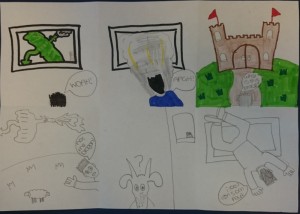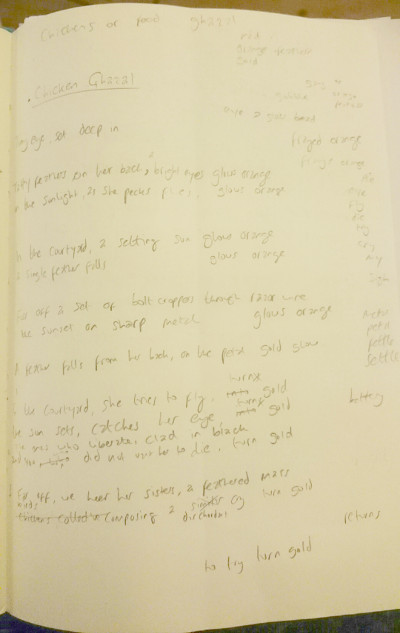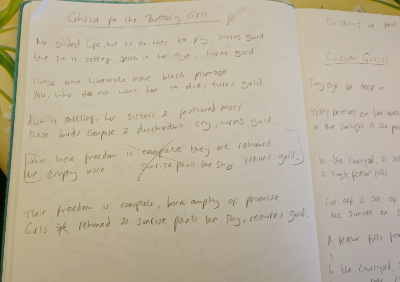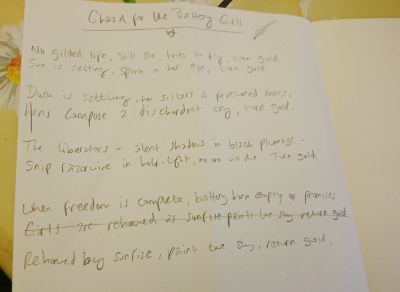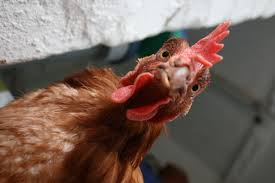Second year turned out to be a mixture of doubt and epiphany, success and strife. There were many moments of joy; I won a couple of prizes, I’ve run workshops, I’ve developed a bond with the borough of Rochdale, and I feel like I know the shape of my thesis even though I’m struggling at times to find the words. At the same time there have been moments of family illness, random events, relationship tension, that seasonal sadness that bites in November and will not unclasp its jaws until March.
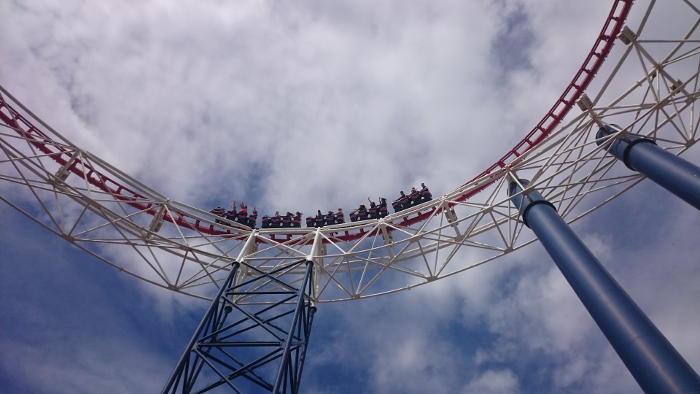
Those elusive words, sliding along the tracks, their sounds captured in the clouds.
And this summer too has been a bit of a rollercoaster. Not a smooth rollercoaster, more like a Blackpool rollercoaster; sometimes fun, sometimes whiplash inducing painful. Â It’s been hard to summon up the “WOO!” at times. And often I feel like I’m falling or failing, the lap bar barely keeping me secure.
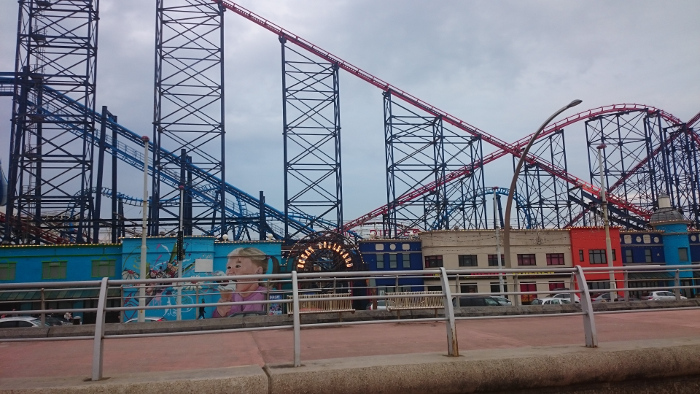
Negotiating the metal tangle: materials that endure, some have been there before and will remain long after, all will be ephemeral.
The research rollercoaster is an intriguing ride – possibly white knuckle – but ultimately the aim is to not only improve my own skills (I love learning, a little unsure as to whether I’m any good at it but I love it) but also to add to an argument, to try, in my own small way, to make a positive difference. It seems that there is a common assertion, or assumption, that a PhD is an isolated experience. It’s really not. Yes you are becoming a specialist in your own niche of a niche, but you do so in collaboration. If it were not for the encouragement of Dr David Cooper and the rest of my fantastic supervisory team (Doctors: Rachel Dickinson, Julie Armstrong, Kirsty Bunting and Jane Turner) I think I may have given up, accepted defeat. And I owe it to a borough – messy, weird, wonderful, challenging, complex – and the people within it who have been so generous with their time. And I owe it to my friends, all those loved ones. The shoulders of many, many giants giving me that boost and view (and what a view). Yes, a PhD represents your hard work, your figuring out, but no: you are not alone.
OK final year, I’m ready for you. Bring it.
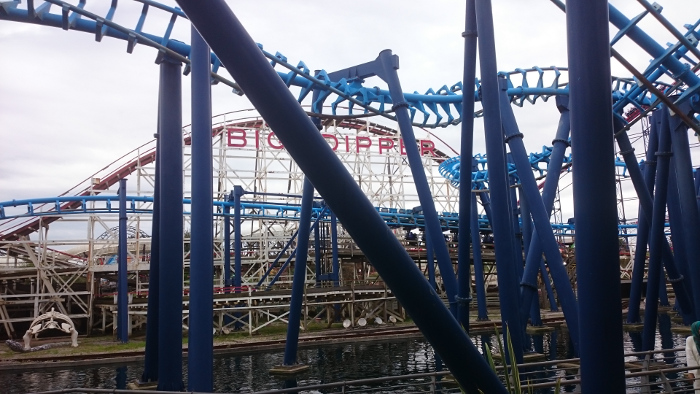
Clanking up the lift hill, arms in the air, ready for the drop.
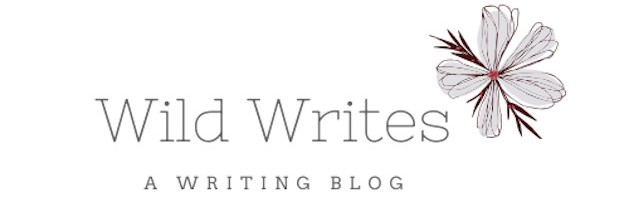



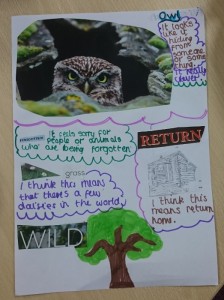 Second blog:
Second blog: 